{Sponsored}
When my husband and I moved into our home, I imagined having this elaborate garden where we would grow our own fruits and vegetables and I could simply step outside to “shop” for our fresh meals. While we’ve had some success with certain types of produce (mainly lemons, tomatoes, and blackberries), we still rely completely on our local grocery store for these items. Knowing just how difficult it has been (and still is) to get our peach tree to produce fruit that we would enjoy eating, I find it fascinating when I see beautiful displays of vibrant, sweet, tree-ripe fruit at our local Walmart.

Earlier this week, I had an opportunity to spend the day with Mountain View Fruit, located in Reedley, California. Comprised of approximately 75 growers, the organization supplies a majority of the stone fruit you see at your local grocery store each summer season. Marketed under the name Summeripe, the hallmark of these sweet, juicy peaches, plums, nectarines, and pluots is that they arrive in stores ripe and ready to eat. Since we are right in the midst of stone fruit season, which runs from April through October each year, I thought I’d share their story of how these stone fruits are harvested, packed, processed, and delivered to your local store.
One of the most interesting things I learned at the onset of my tour was the fact that Reedley, California is the epicenter of stone fruit. As much as seventy-five percent of the peaches, plums, nectarines, and pluots you see in-stores is grown in this area that spans several miles. The combination of appropriate soil and climate make for ideal growing circumstances.
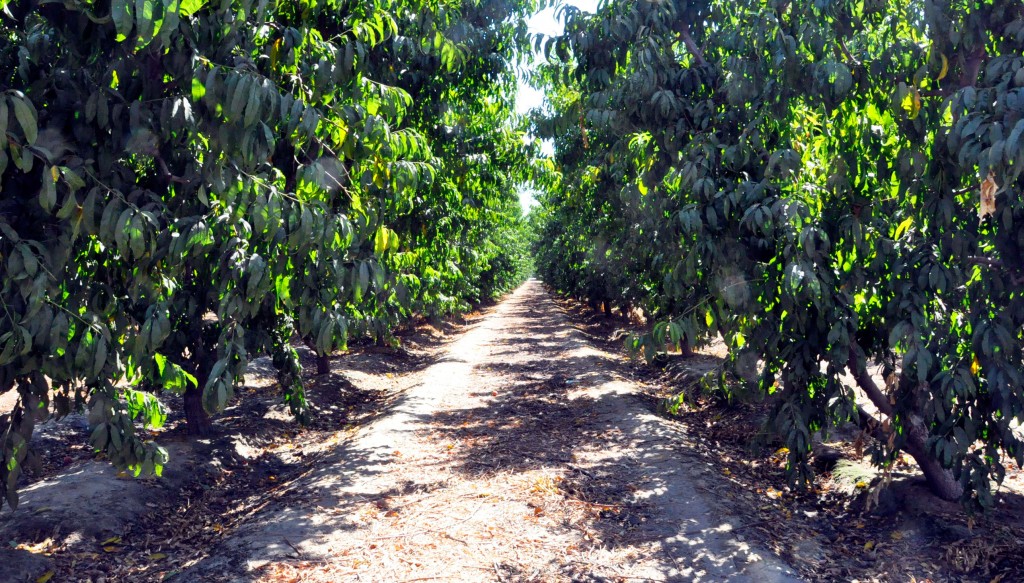
Having been on a number of farm and orchard tours, I expected to learn about the growing process, including a subject that is at the forefront of many Americans’ minds: pesticides. If only snails and rabbits were the main contesters when it comes to growing produce! The worm is actually the biggest threat to peaches (and other stone fruit varieties) and Mountain View Fruit uses several innovative methods to combat them, including Integrated Pest Management. Designed to decrease the amount of pesticides used, growers monitor and treat pests with beneficial insects.
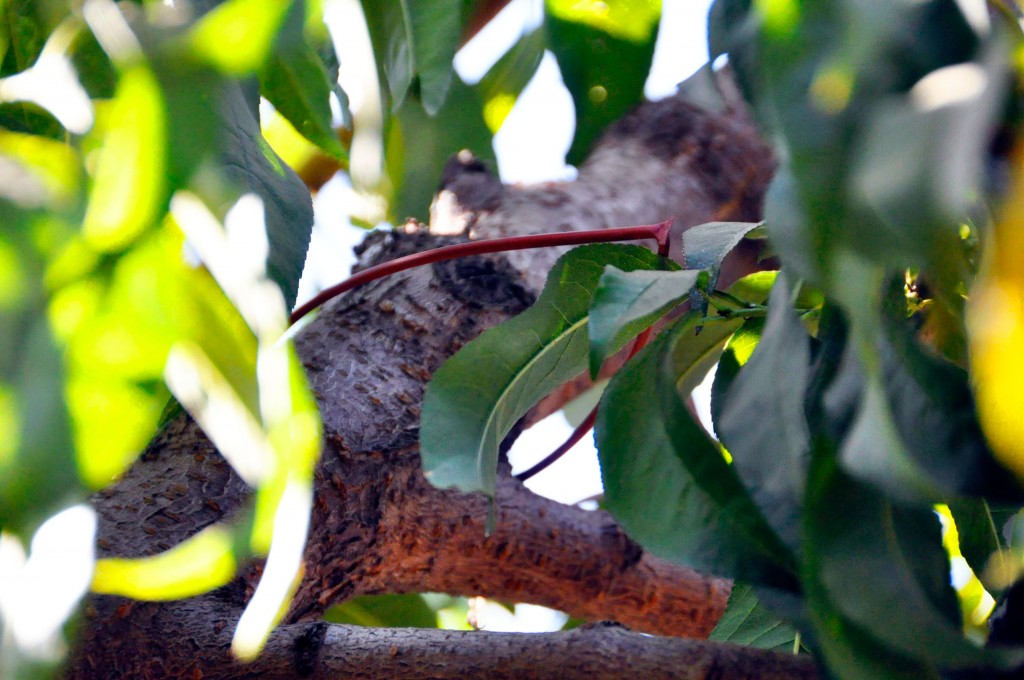
They also use a technique called pheromone mating disruption, where pheromones are placed and emitted throughout the field, confusing the male moth so that he does not continue to breed. When pesticides are required, growers often select the same ones used by organic farmers and the fruit grown and harvested by Mountain View is regularly tested for pesticide residues. According to Wiebe Farms grower Richard Sawatzky, the goal is longevity. “We want to be [good] stewards of the soil, and we constantly ask, ‘What is going to be good for the future?'”
Mountain View is incredibly family-focused and I sensed that as we walked the fields and packing sheds, and spoke with the workers, many of which are family members. Very often, the orchards have been passed down throughout the years, as is the case with Wiebe Farms (where I spent a few hours of my day), which is now in its 5th generation of family growers. Additionally, the growers typically live right next to the orchard, next to the packing sheds and know the land, their trees, and the fruit that they produce.
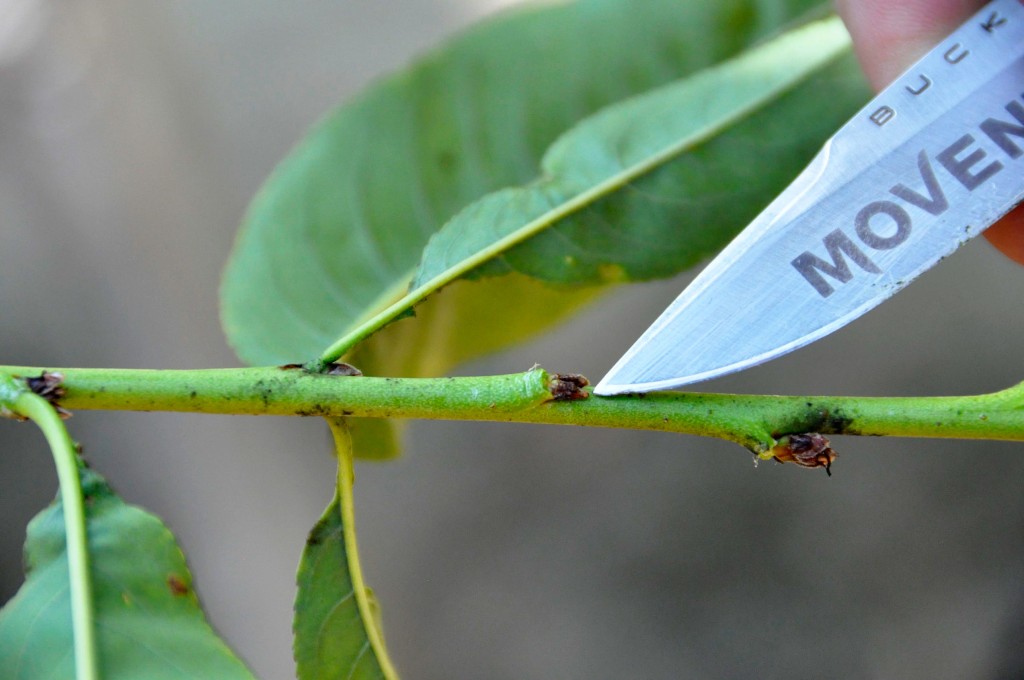
Bud of a Peach
The peach is an interesting fruit and if you’ve ever tried to grow them from a tree (raises hand), you’ll understand the difficulty in achieving fruit that is large, firm (but not too firm), and sweet enough to eat within a few days of picking.
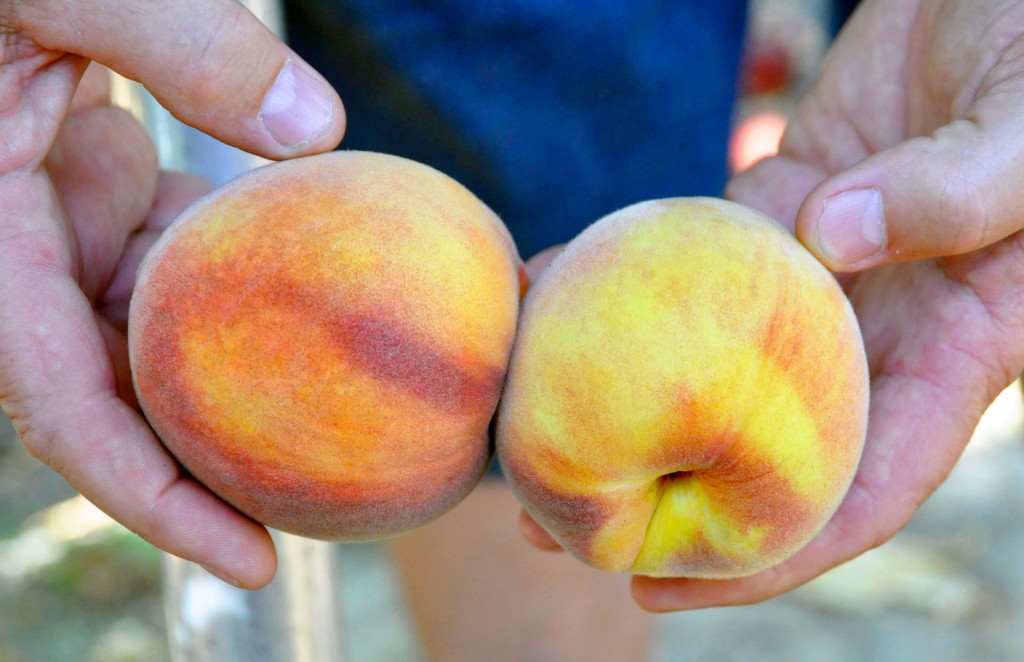
Workers are trained to visualize which peaches are ripe (on the left) and ready to be picked
Even now as the workers employed by Wiebe Farms are picking the fruit off the trees, the growers are planning for the next season.
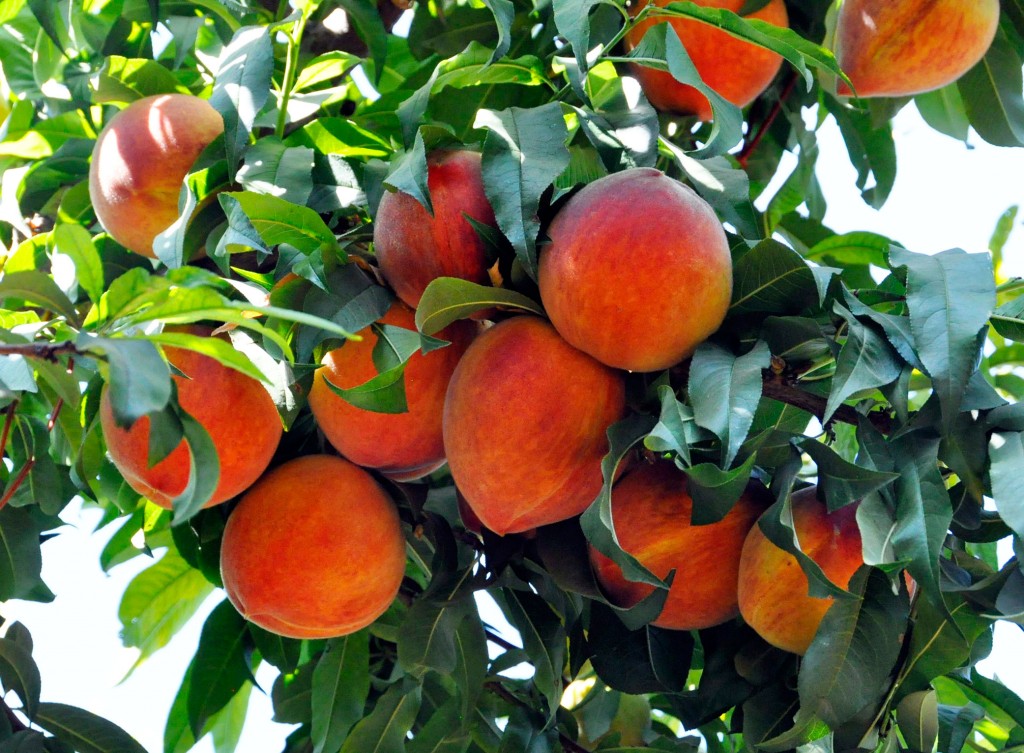
The entire process is so methodical and well thought-out, yet peaches (and other stone fruits) have specific requirements in order to grow properly. For example, peach trees “sleep” during the winter and require 700-900 hours of temperatures below 45 degrees Fahrenheit (although 28-35 degrees Fahrenheit is ideal) to produce sufficient quantities of quality fruit.
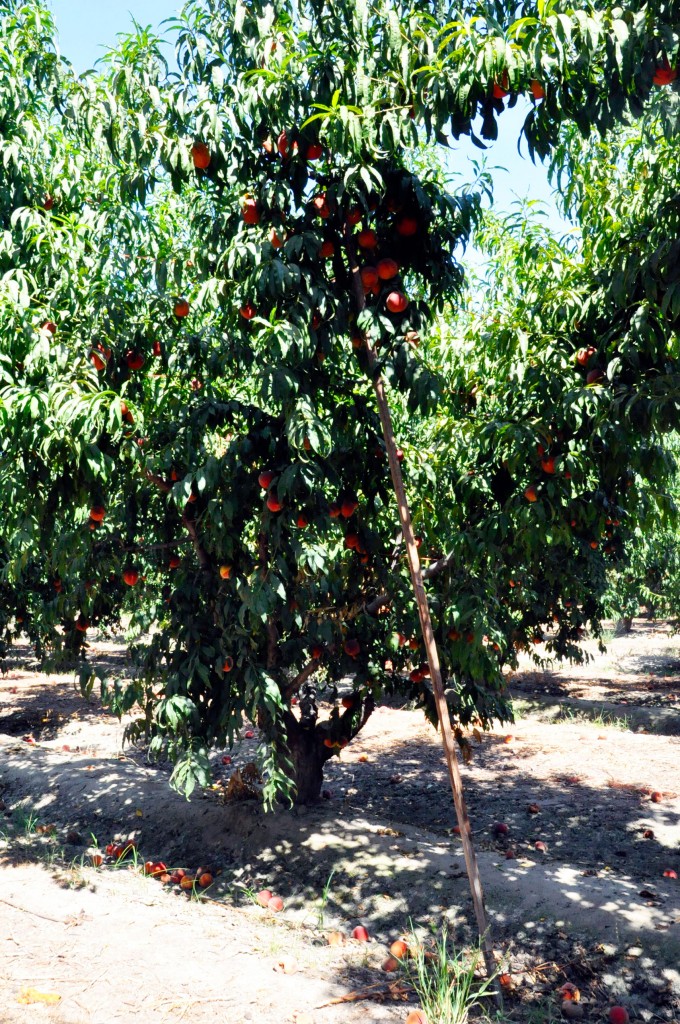
The trees can become so heavy with fruit that they require extra support
And although difficult to visualize, each of the trees pictured throughout this post contain as many as 1000 peaches!
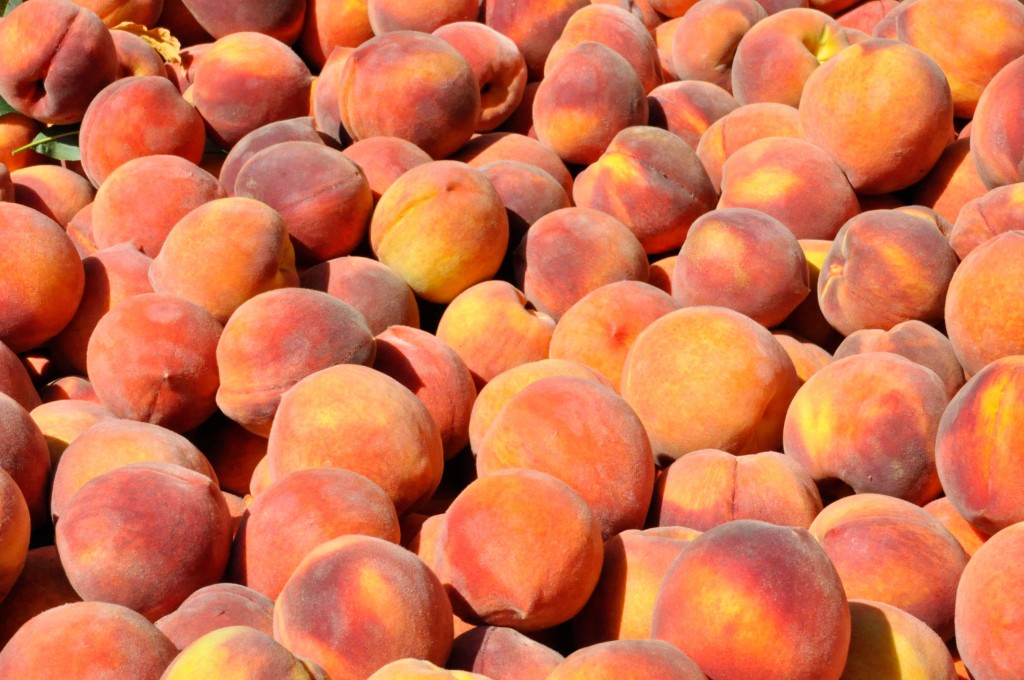
August is peak peach (and other stone fruits) season and the workers in the orchard are hand-picking the fruit every 4-5 days.
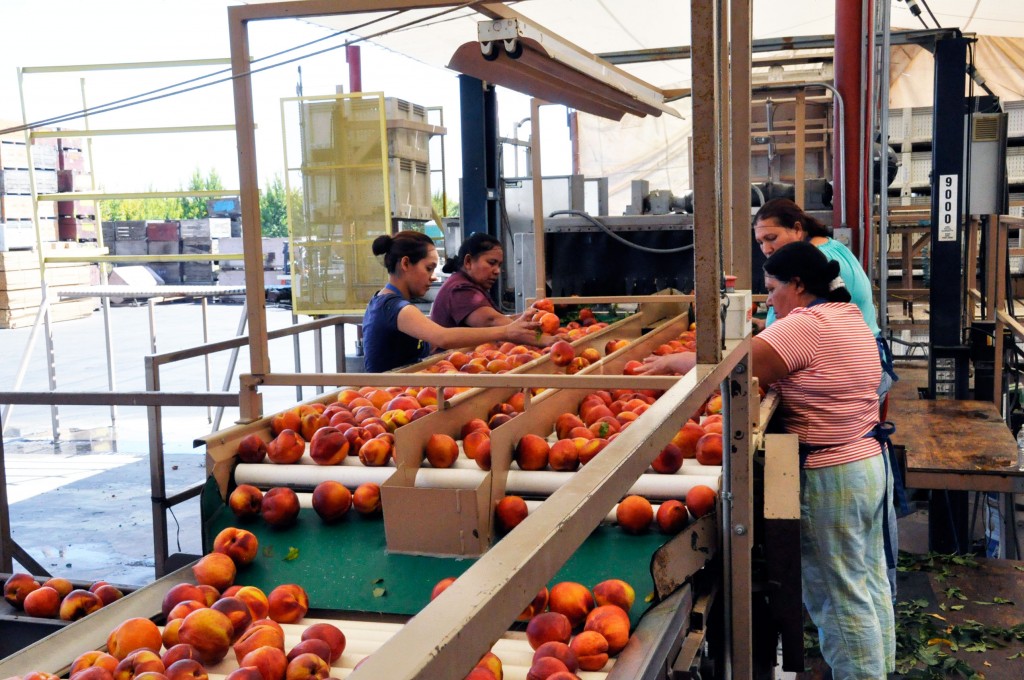
Once picked, they are transferred the short distance to a local packing shed, often located right next to or even inside the orchard. This is where the fruit is then washed, sorted, sized, and packaged to be processed in Mountain View Fruit’s Cold Storage Facility.
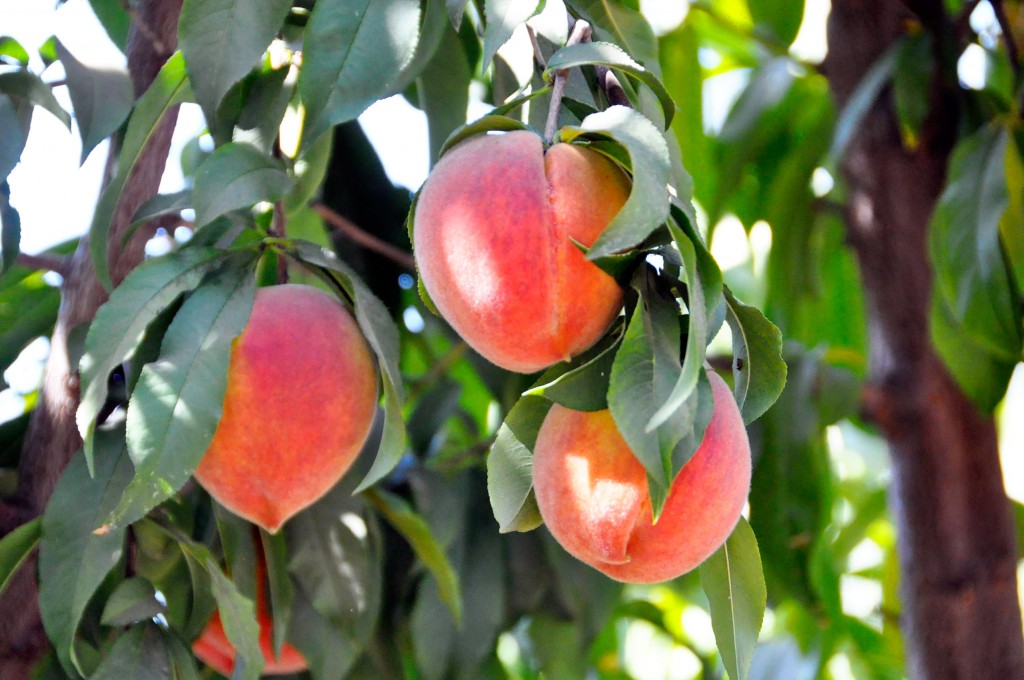
As mentioned above, the distinguishing characteristic of Summeripe fruit is that you can enjoy it immediately once purchased. Previously, it was necessary to ripen stone fruits in a brown bag, but Mountain View has perfected the art of ripening their fruit through a process called conditioning. In their state-of-the-art facility, stone fruits like peaches are chilled to 32 degrees Fahrenheit in a high humidity room, which lowers their acidity. This process is completely natural (there are no chemicals or synthetics) and mimics the conditions of being attached to the tree so that the fruit ripens naturally. Every 3 hours, the fruit is tested for firmness and sugar content which will determine when it is ripe. The fruit may stay in this room for 6-8 hours until it is ready to be transported to stores across the country.
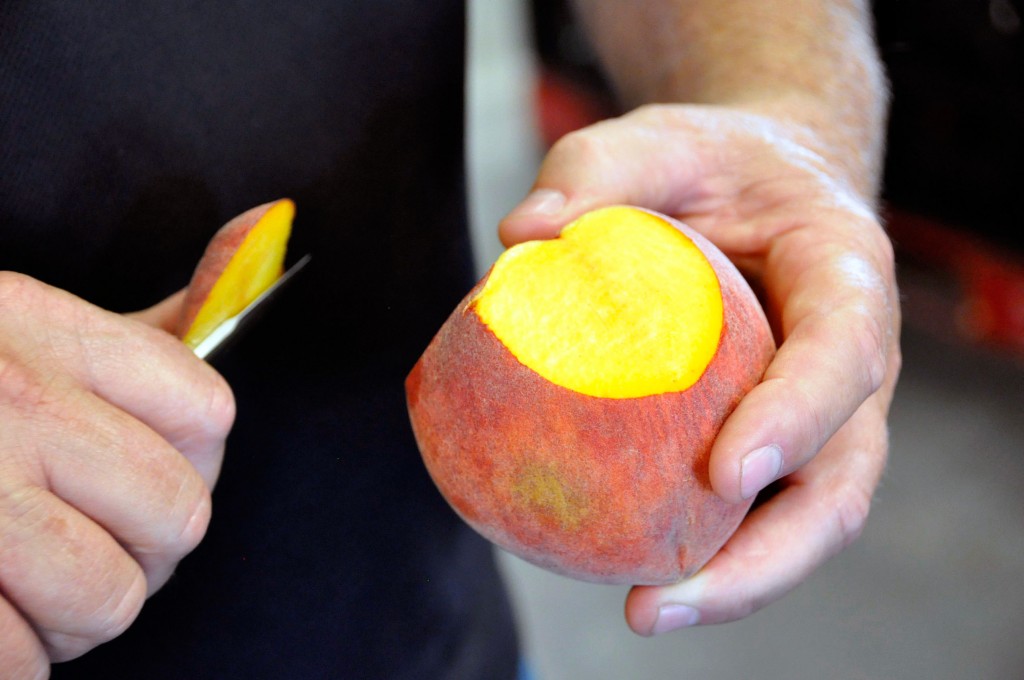
I found the entire process fascinating and I walked away with a better understanding of how much knowledge, passion, and commitment these growers have for supplying families like ours with quality fruit. One of the highlights of my day with Mountain View Fruit was taste-testing new varieties. Every week venue holds internal tastings with the goal of finding the right variety to grow. I may take testing up to 1000 varieties to find just one.
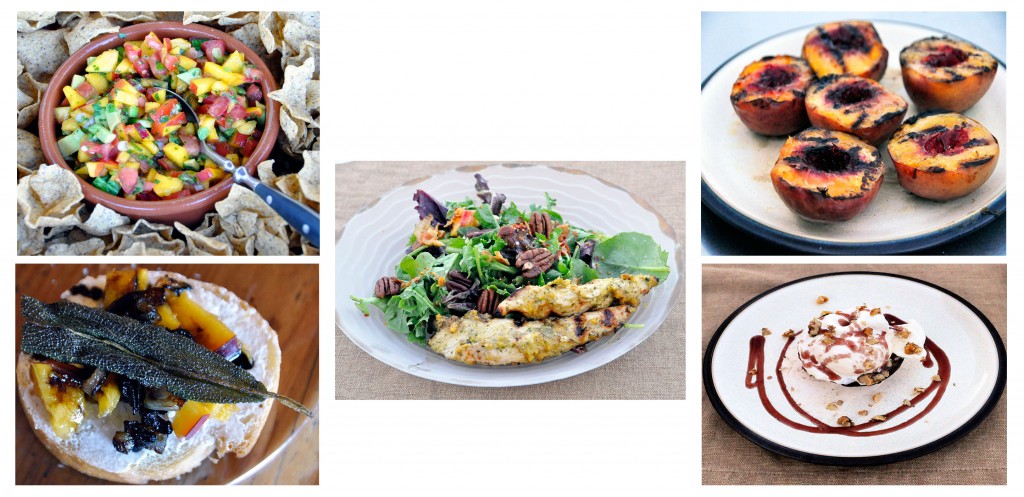
We ended our day with a peach-inspired meal which included a peach salsa, DIY peach bruschetta, peach salad, and grilled peaches with ice cream. All of the recipes can be found on MVFruit.com/recipes.
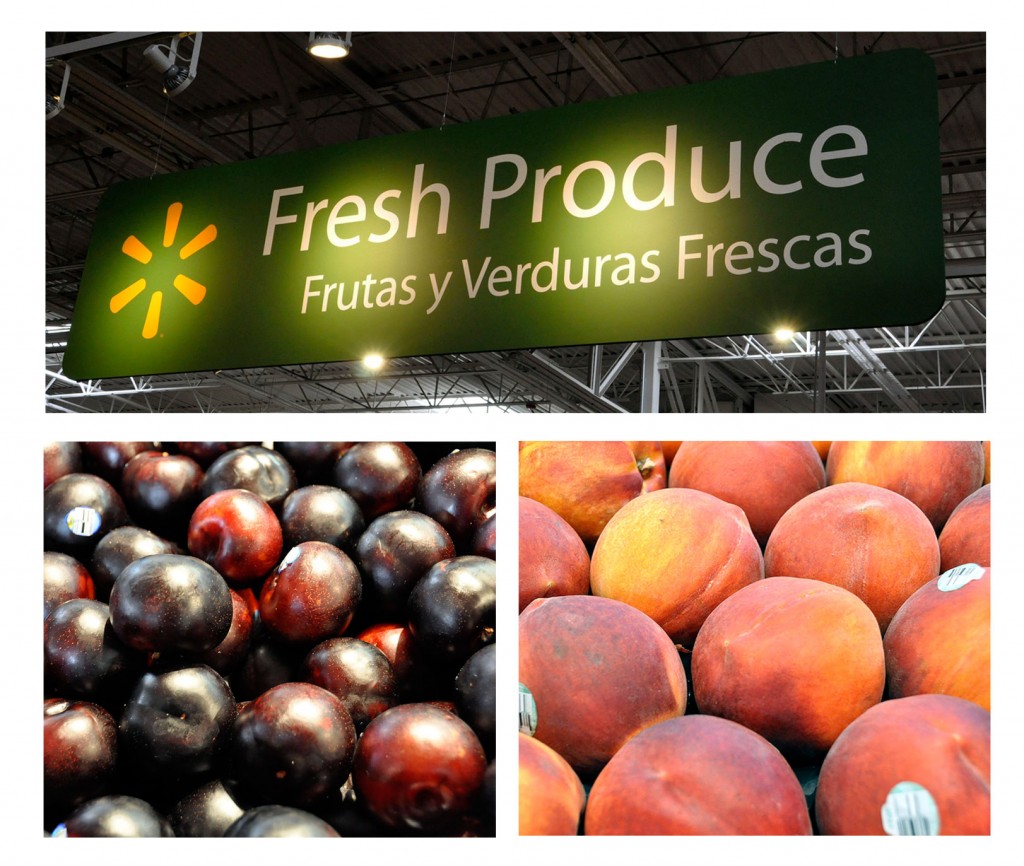
You may have noticed that your local Walmart offers a broader selection of locally-grown produce.
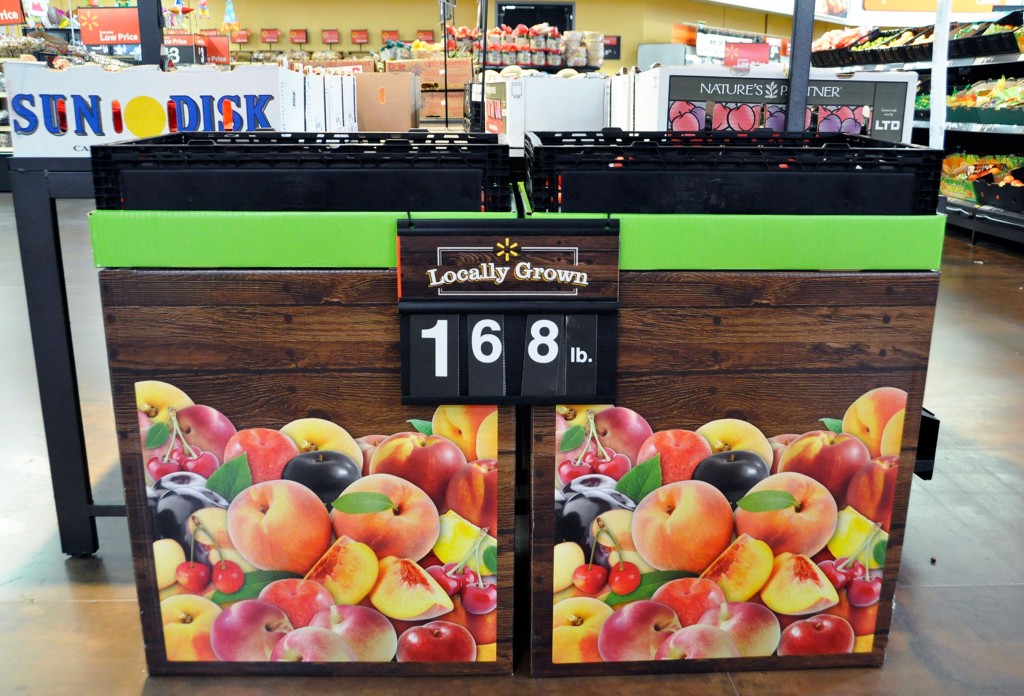
It is through their partnerships and support for small family farms that Walmart is able to offer its customers such quality fruit at an affordable price. For more information about Mountain View, visit their website.
- Discover Luxury at Sonesta Irvine: Your Ideal Staycation - August 8, 2024
- CHOC Walk Returns to the Disneyland Resort – Special Events and Ways to Support - June 28, 2023
- Beastly Ball Returns to the Los Angeles Zoo - May 8, 2023






Leave a Reply